A Guide to Keeping Your Cat Healthy
Introduction
Cats are obligate carnivores, meaning their diet must be rich in high-quality animal protein and essential nutrients to support their health. Unlike humans or even dogs, cats have unique nutritional requirements that must be met through a well-balanced diet. A lack of key nutrients like taurine, omega-3 fatty acids, or vitamin A can lead to severe health issues, including heart disease, poor vision, and weakened immunity.
Choosing the right cat food—whether dry kibble, wet food, raw diet, or homemade meals—can be overwhelming. Many pet owners struggle with questions like: What is the best diet for my cat? Should I avoid grains? How much should my cat eat daily?
This ebook is designed to provide clear and science-backed insights into the essential nutritional needs for cats. You’ll learn about protein, fats, vitamins, minerals, and hydration, as well as common nutritional deficiencies and how to prevent them. Whether you’re feeding a kitten, adult cat, or senior feline, this guide will help you make informed choices to keep your cat healthy, active, and happy.
Let’s dive in!

1. The Basics of Feline Nutrition
Cats are obligate carnivores, meaning they require a diet rich in high-quality animal protein to thrive. Unlike dogs and humans, who can digest plant-based foods more efficiently, cats depend on essential nutrients found in meat, such as taurine, arachidonic acid, and vitamin A. A deficiency in these nutrients can lead to serious health issues, including vision problems, heart disease, and a weakened immune system. Providing a balanced diet with the right mix of proteins, fats, vitamins, and minerals is crucial to maintaining a cat’s overall health, energy, and longevity.
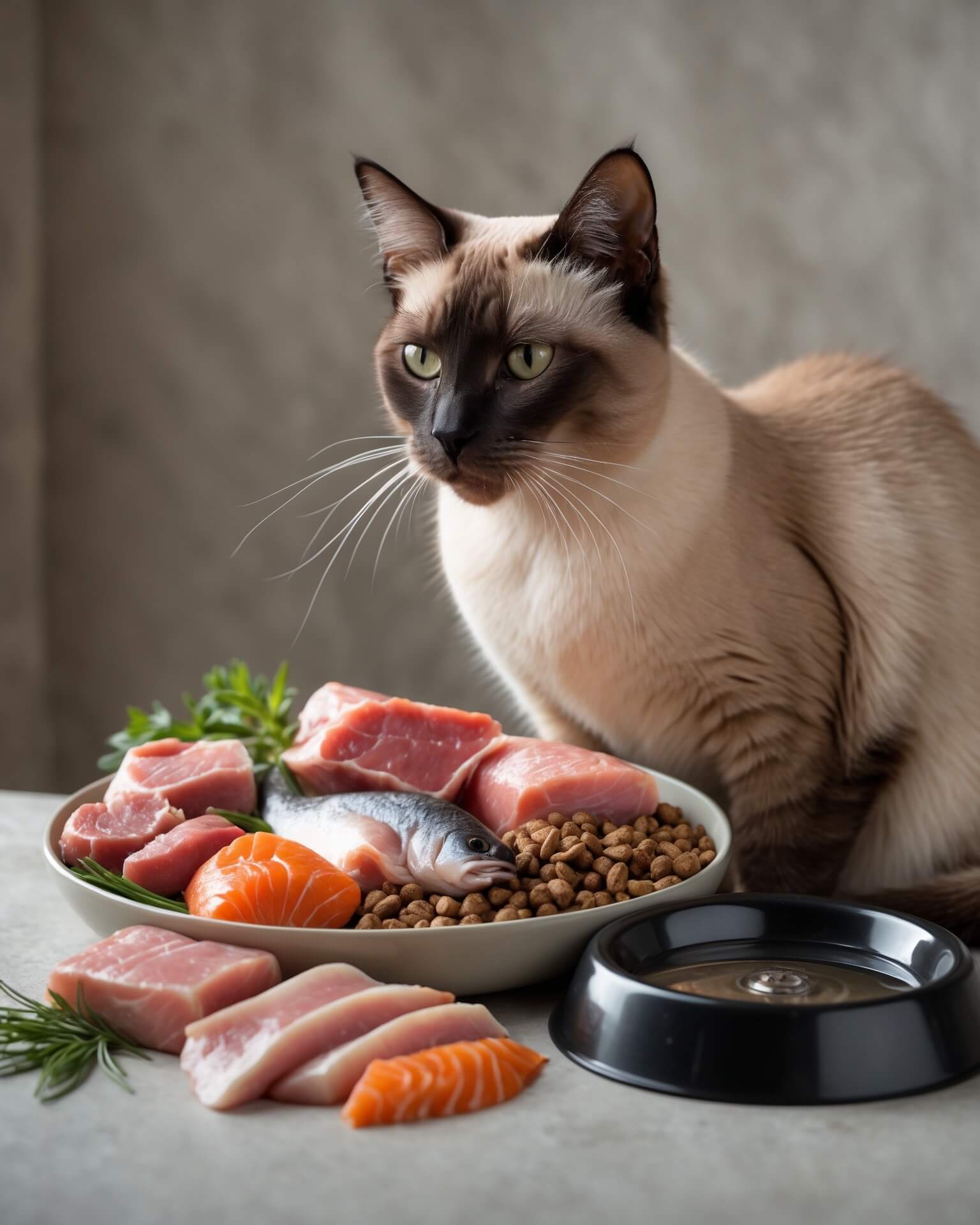
2. Essential Nutrients for Cats
Cats require a well-balanced diet rich in essential nutrients to maintain optimal health. As obligate carnivores, they depend on high-quality proteins and vital amino acids like taurine and arginine, which support heart health and metabolism. Healthy fats, including omega-3 and omega-6 fatty acids, promote a shiny coat and reduce inflammation. Unlike humans, cats have minimal need for carbohydrates, as their energy comes primarily from protein and fat. Vitamins and minerals like vitamin A, D, E, calcium, and phosphorus are crucial for strong bones and immunity. Lastly, proper hydration is essential for kidney function and overall well-being.
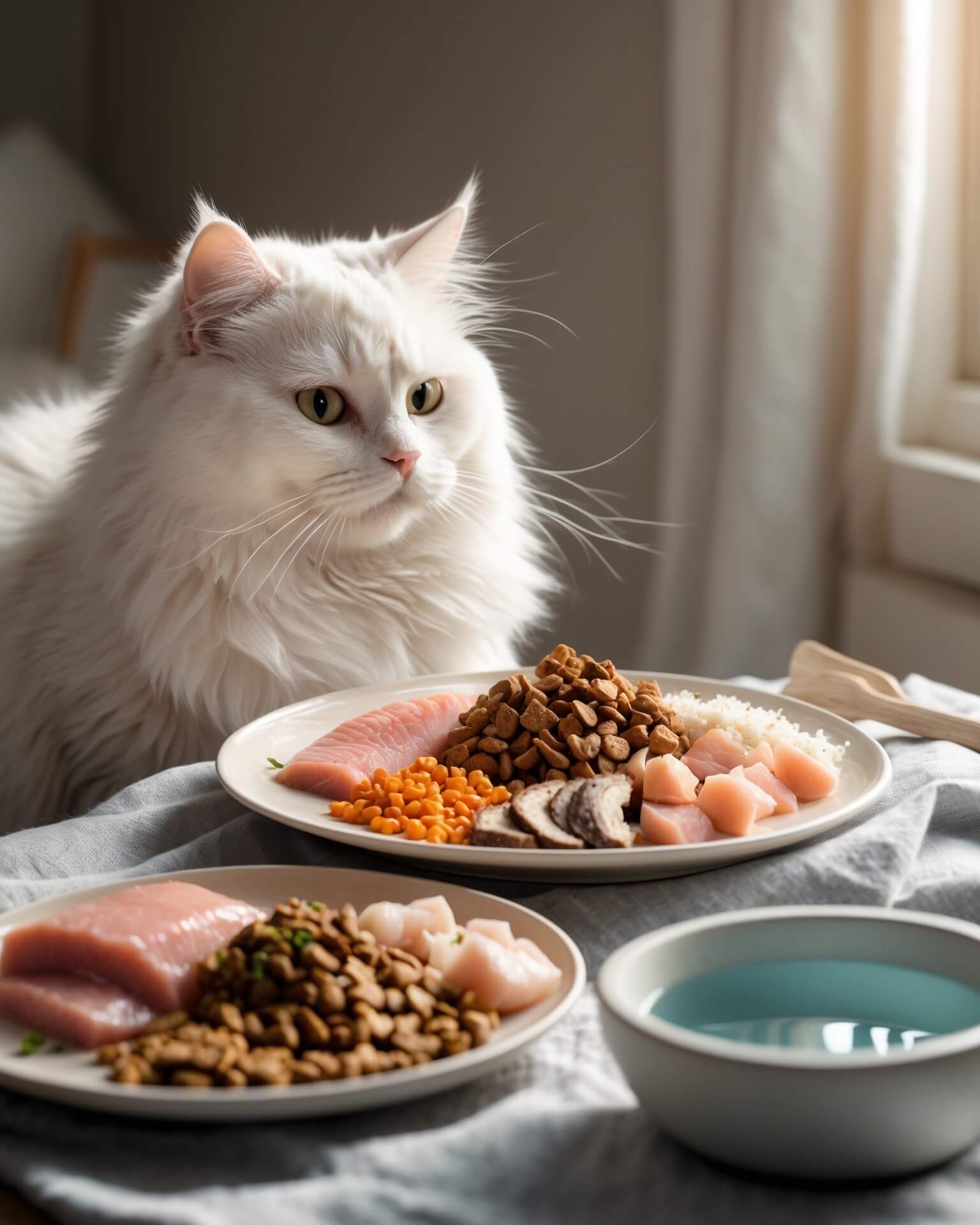
3. Types of Cat Food
Choosing the right cat food is essential for a cat’s health. Dry kibble is convenient and promotes dental health, but it contains less moisture, making hydration crucial. Wet food (pâtée) is rich in protein and moisture, supporting kidney health but may spoil quickly. Raw diets (BARF) offer natural nutrients but pose risks of bacterial contamination. Homemade cat food requires careful balancing of proteins, vitamins, and minerals to meet feline dietary needs. Always read cat food labels, checking for high-quality protein, taurine, omega-3s, and essential nutrients.
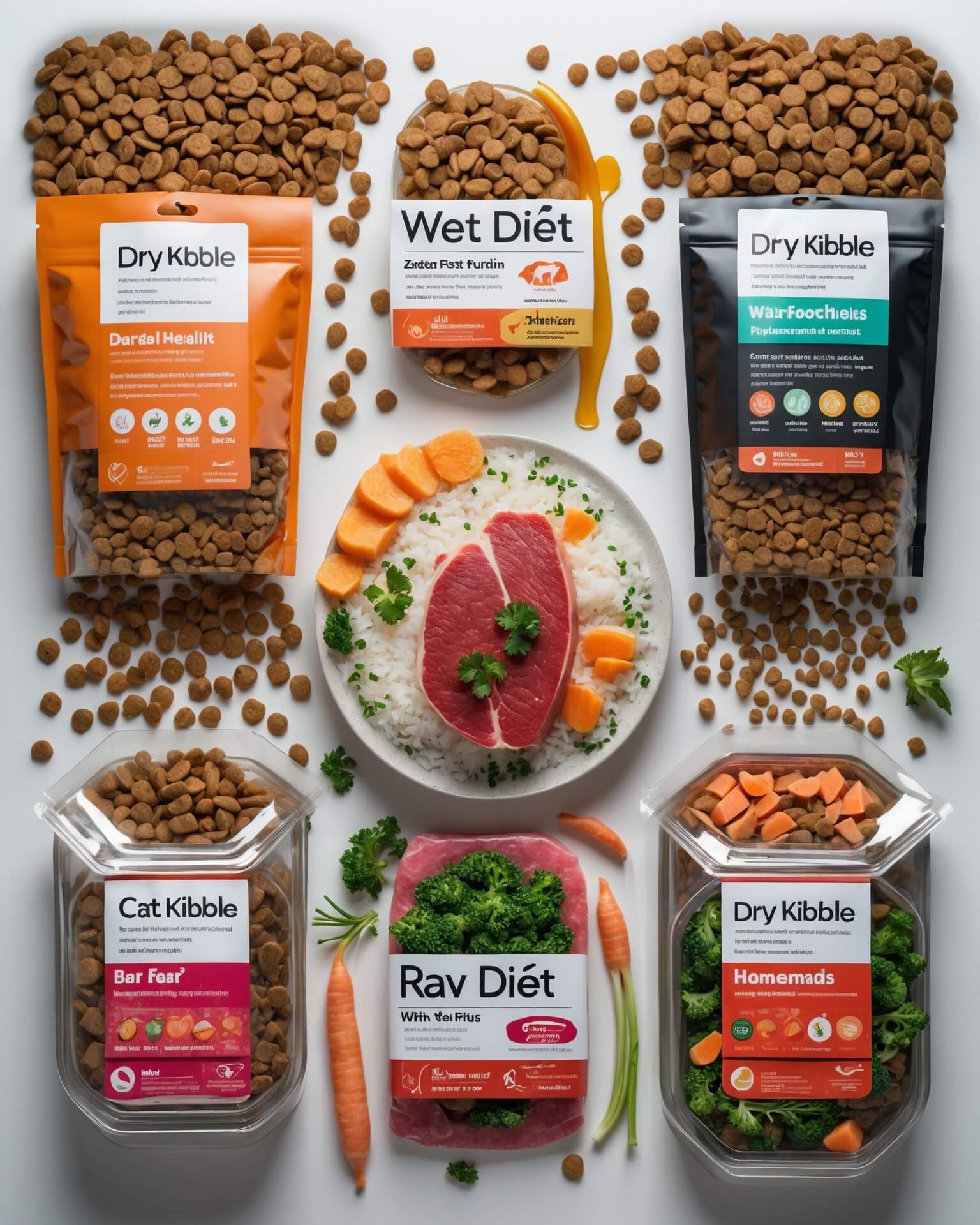
4. Common Nutritional Issues & How to Avoid Them
Proper feline nutrition is essential to prevent health problems. Obesity in cats is often caused by overfeeding, lack of exercise, and excessive carbohydrates in their diet. To prevent it, provide portion control, high-protein meals, and regular activity. Nutritional deficiencies, such as low taurine, vitamin A, or calcium, can lead to severe health issues. Avoid toxic foods like chocolate, onions, garlic, and grapes, which can be fatal. Food allergies and intolerances, often caused by common proteins or additives, may lead to digestive issues, skin problems, and itching, requiring a specialized diet.
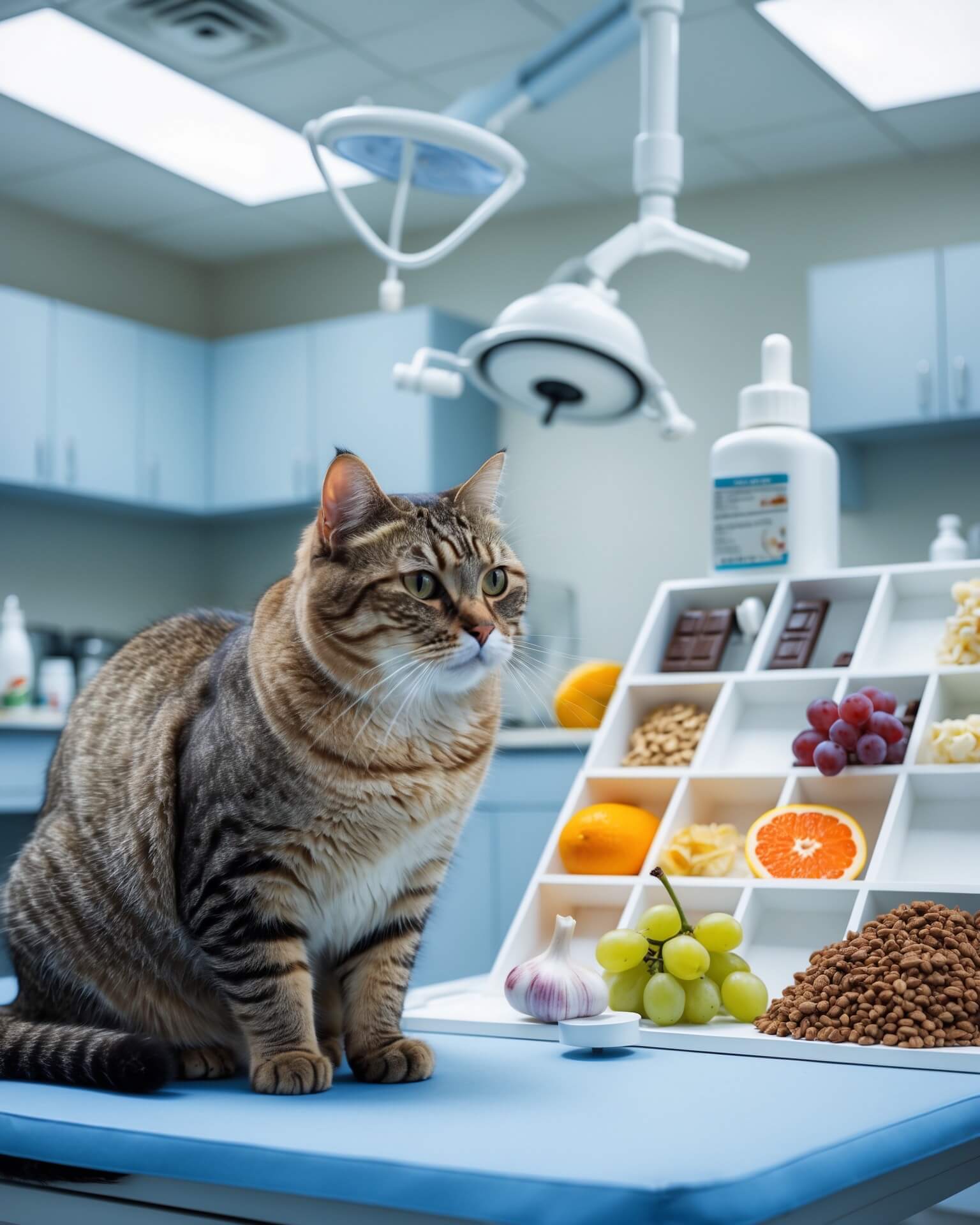
5. Feeding Tips & Best Practices
Providing the right feeding schedule and portion sizes is crucial for feline health. Kittens need small, frequent meals rich in protein and fat for growth, while adult cats thrive on two balanced meals daily. Senior cats may require softer food and adjusted nutrients to support aging joints. Cats with diabetes need low-carb, high-protein diets, while those with kidney disease benefit from low-phosphorus meals. If your cat is a picky eater, try warming food, offering variety, or using interactive feeders to stimulate appetite and maintain a healthy diet.
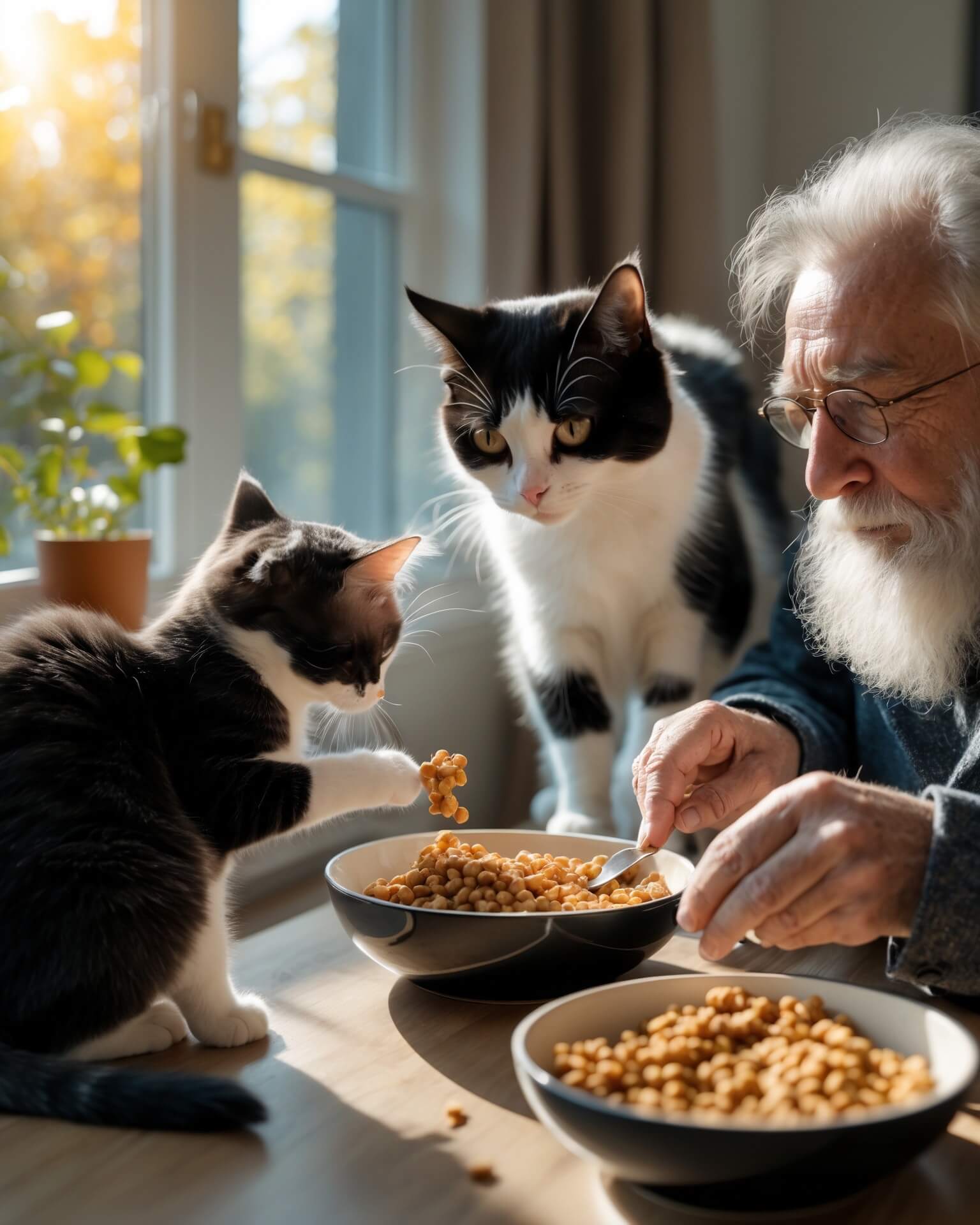
Conclusion & Final Tips
Ensuring proper feline nutrition is key to a healthy and happy cat. Remember to provide a balanced diet rich in protein, essential nutrients, and proper hydration. Avoid toxic foods, monitor portion sizes, and adjust meals based on age and health conditions.
Quick Checklist for a Healthy Cat Diet:
✔ High-quality protein source (meat-based)
✔ Essential amino acids (taurine, arginine)
✔ Proper hydration (wet food or fresh water)
✔ Avoid toxic ingredients (chocolate, onions, garlic)
✔ Consult a veterinarian for personalized advice
For trusted brands and veterinary guidance, always rely on science-backed recommendations.




